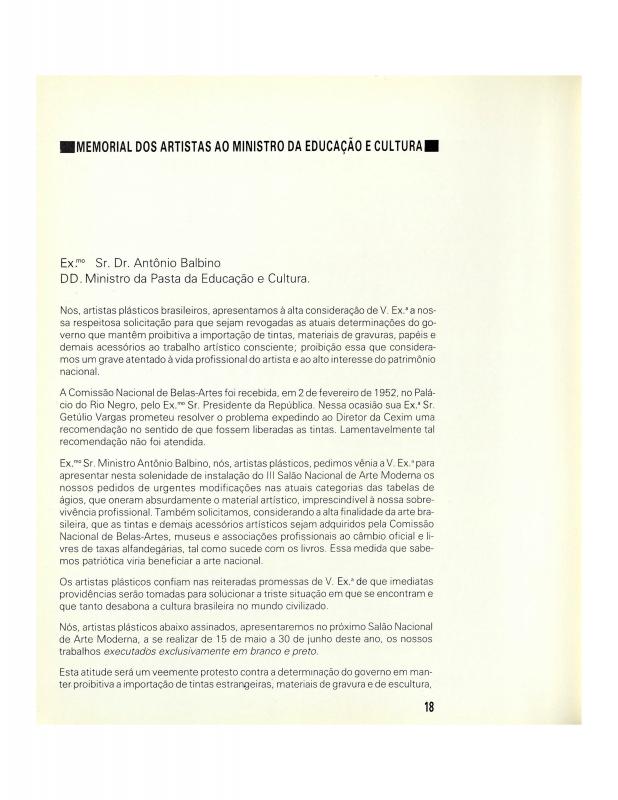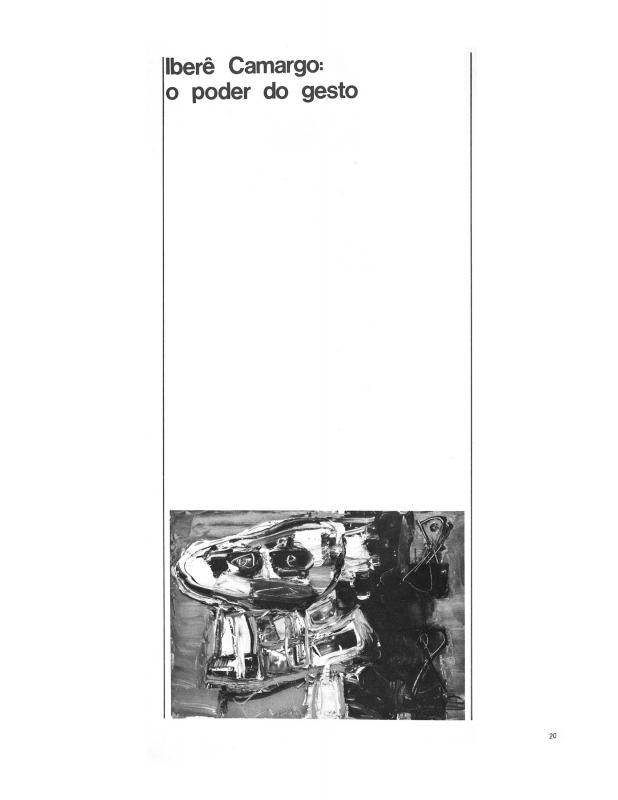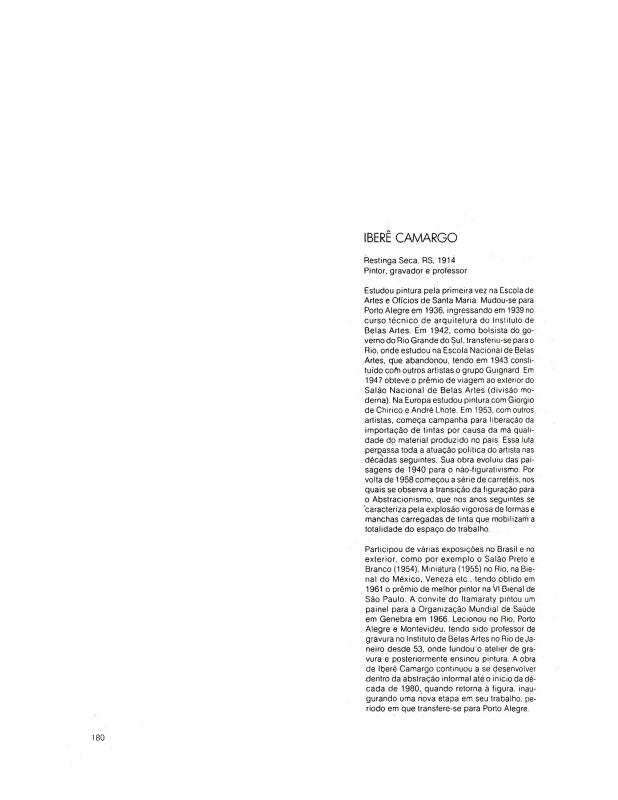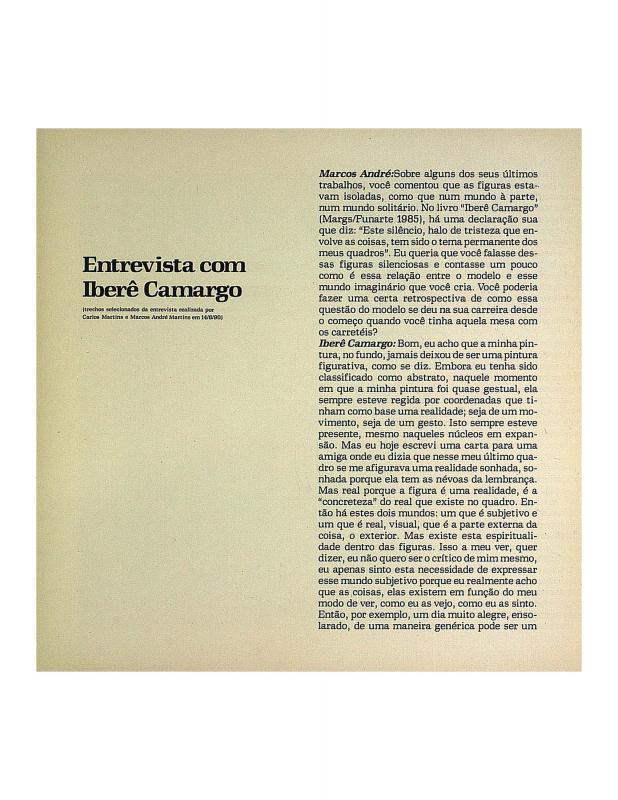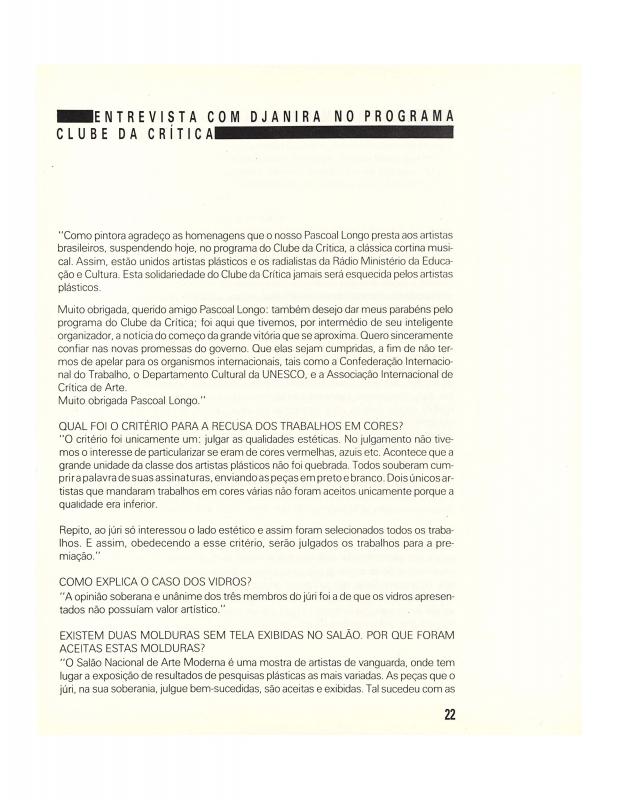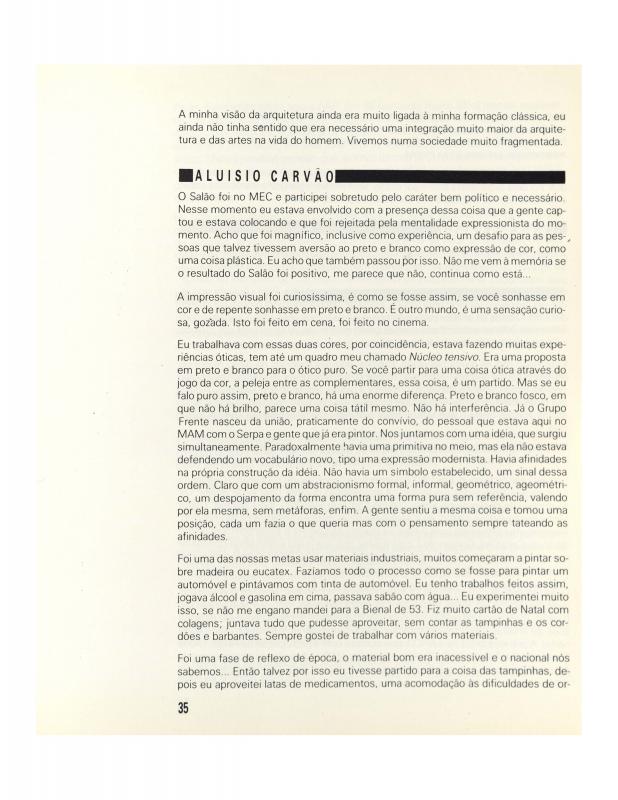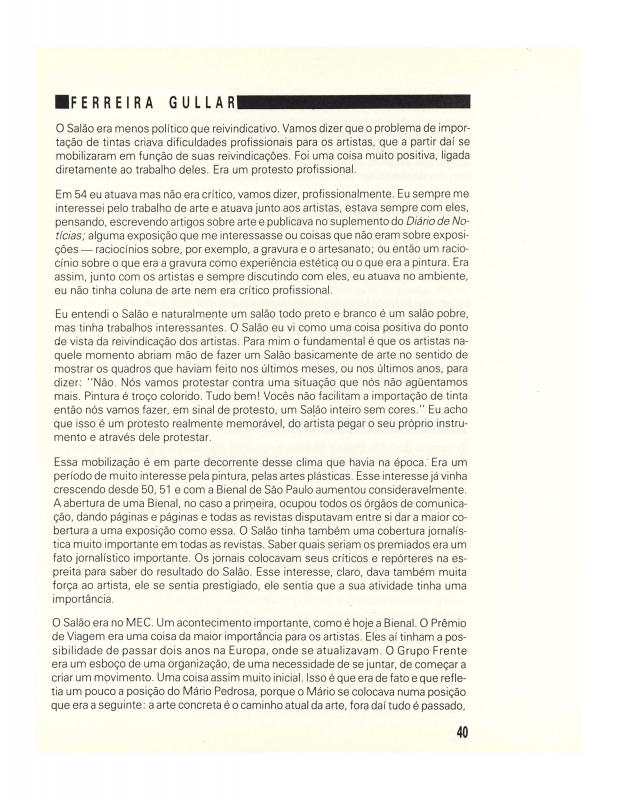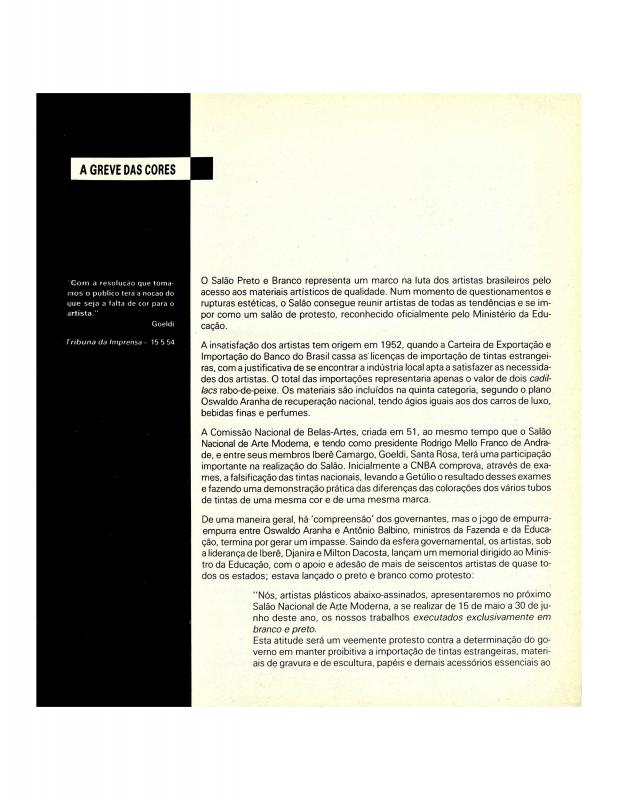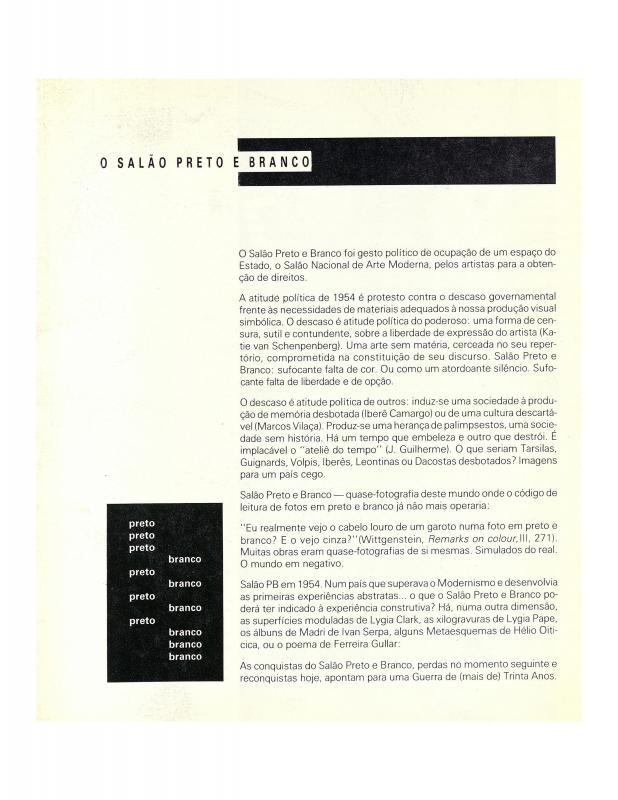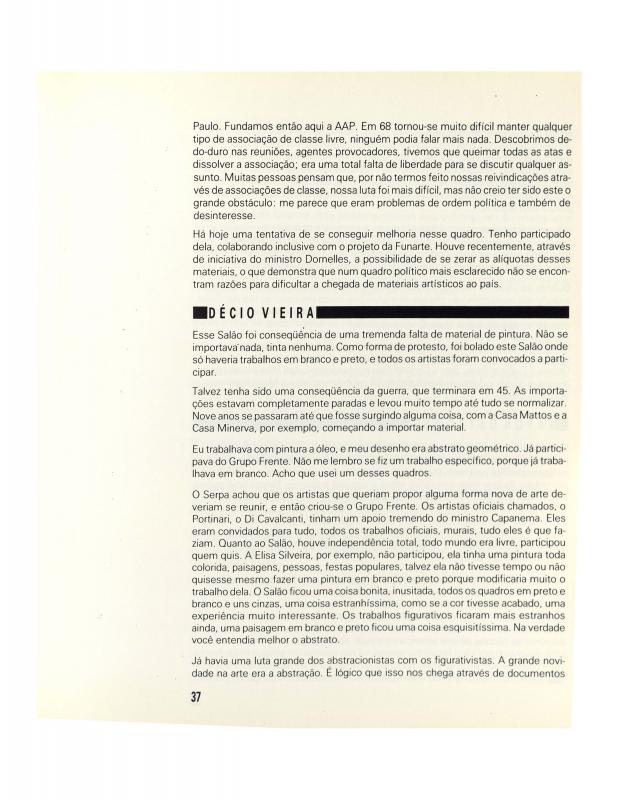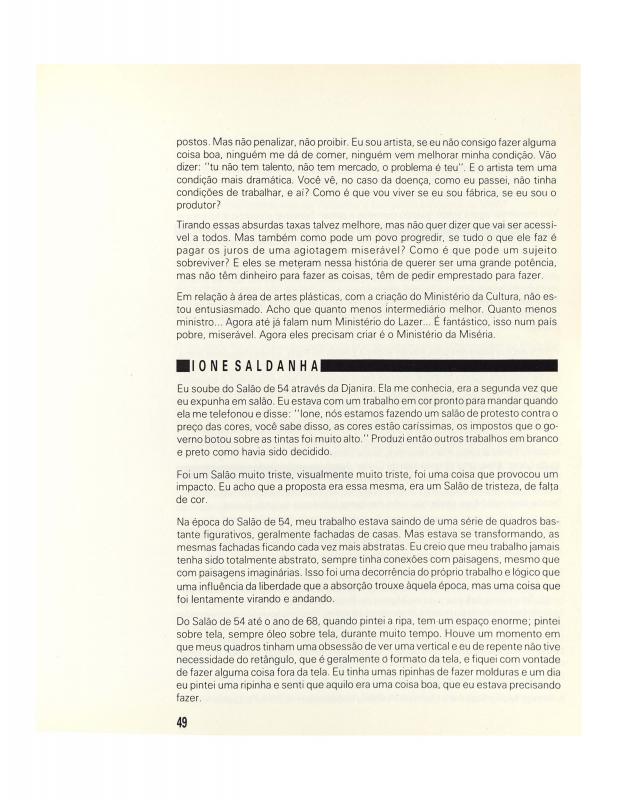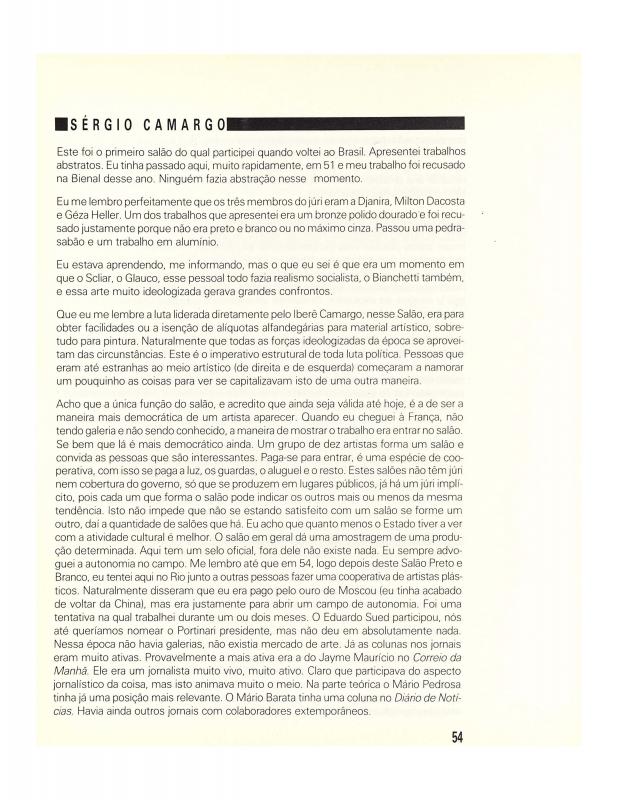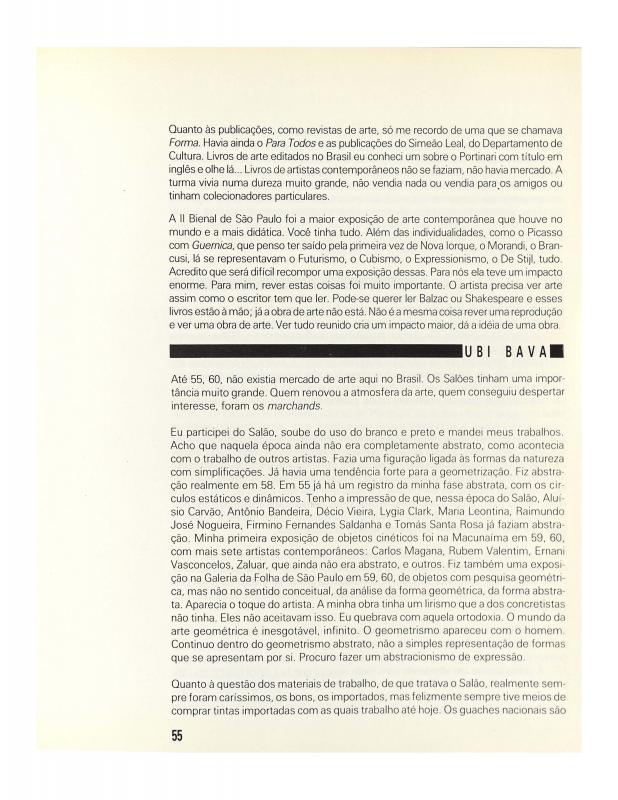Iberê Camargo (1914–1994) was born in the state of Rio Grande do Sul; he moved to Rio de Janeiro in 1942, where he studied at the Escola Nacional de Belas Artes under the painter Alberto [da Veiga] Guignard. In 1947 he was given a grant to study in Europe with Giorgio de Chirico, Carlos Alberto Petrucci, Antônio Achille, and Leone Augusto Rosa in Rome, and with André Lhote in Paris. After returning to Brazil in 1950 he became a member of the Comissão Nacional de Belas Artes in 1952. Two years later he, Djanira (1914–1979), and Milton Dacosta (1915–1988) organized what came to be known as the Salão Preto e Branco (Black-and-White Salon), and sent a letter to the Ministério da Educação e Saúde (MES) (see, in the ICAA digital archive: doc. no 1307648">1307648).
Iberê Camargo’s recollections (and those of other artists) were included in the book A Arte e seus materiais: Salão Preto e Branco, 3º Salão Nacional de Arte Moderna, 1954 (Art and its Materials: Black and White Salon, Third National Modern Art Salon, 1954), published on the occasion of the 1985 exhibition at the Galería Especial del Salão Nacional de Artes Plásticas. According to the book, the situation recalled the famous Black-and-White Salon of 1954 in which works by Camargo, Aluísio Carvão, Anna Letycia, Aldo Bonadei, Ivan Serpa, Lygia Clark, Maria Helena Andrés, Maria Leontina, Tarsila do Amaral, Ubi Bava, and many others were shown. The publication includes primary and secondary sources that refer to the 1954 exhibition, as well as interviews with contemporary artists and critics. The mobilization of so many people—artists, critics, art dealers, curators, and others—created enough pressure to secure a change in the government’s policy. In June 1954, shortly before the Salon closed, the Finance Ministry changed the “luxury” designation to “necessary.”
[For more information about Iberê Camargo, see the following interviews: “Iberê Camargo: o poder do gesto” (doc. no. 1110416); “Iberê Camargo” with Fernando Cocchiarale and Anna Bella Geiger (doc. no. 1110415); and “Entrevista com Iberê Camargo” by Marcos André Martins and Carlos Martins (doc. no. 1110420).]
[For complementary reading on the subject of the Salão Preto e Branco (Black-and-White Salon), see: “Memorial dos artistas ao Ministro da Educação e Cultura” (doc. no. 1307648">1307648); “Mensagem do Ministro da Educação e Cultura ao artistas” (doc. no. 1307663); “Entrevista com Djanira no programa clube da crítica” by Pascoal Longo (doc. no. 1307678); “Depoimentos: Aluísio Carvão” (doc. no. 1307694) and “Depoimentos: Ferreira Gullar” (doc. no. 1307732) by Glória Ferreira and Luiza Interlenghi; “A greve das cores” by Glória Ferreira (doc. no. 1307631); “O Salão Preto e Branco” by Paulo Herkenhoff (doc. no. 1307599); and five testimonials conducted by Luiza Interlenghi: “Depoimentos: Décio Vieira” (doc. no. 1307712); “Depoimentos: Ione Saldanha” (doc. no. 1307774); “Depoimentos: José Silveira D’Ávila” (doc. no. 1307791); “Depoimentos: Sérgio Camargo” (doc. no. 1307831); and “Depoimentos: Ubi Bava” (doc. no. 1307851).]

